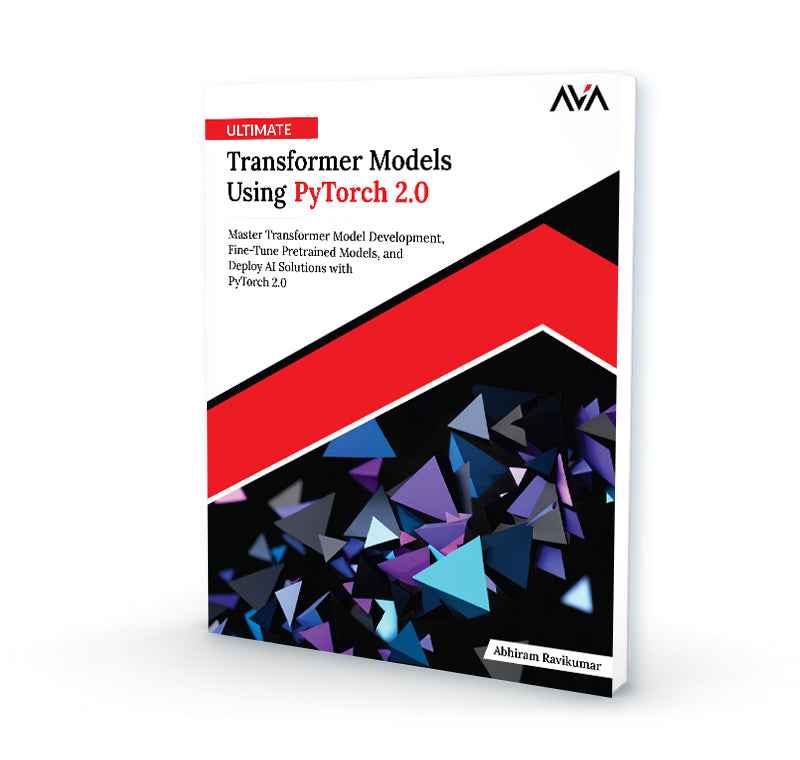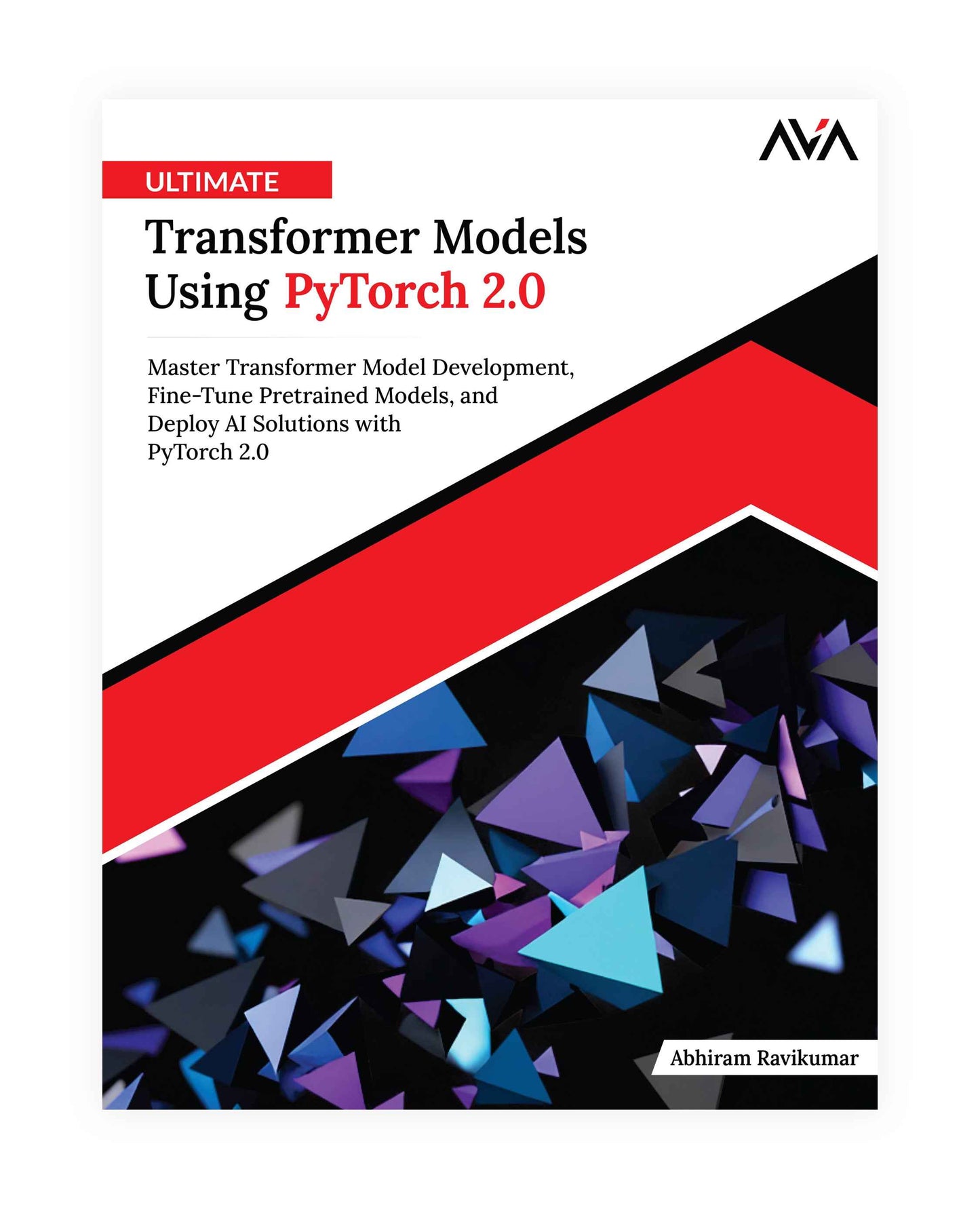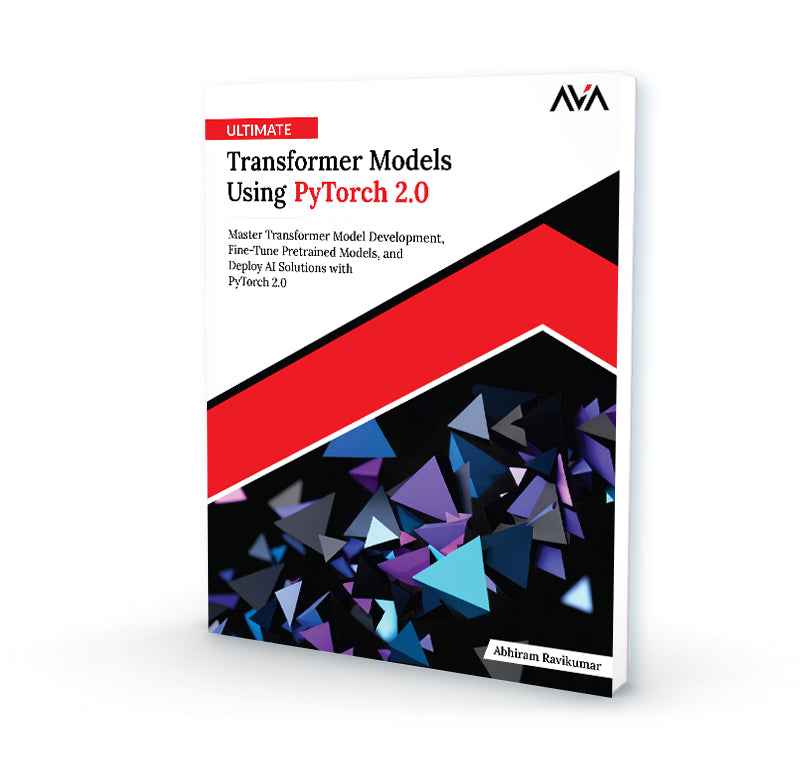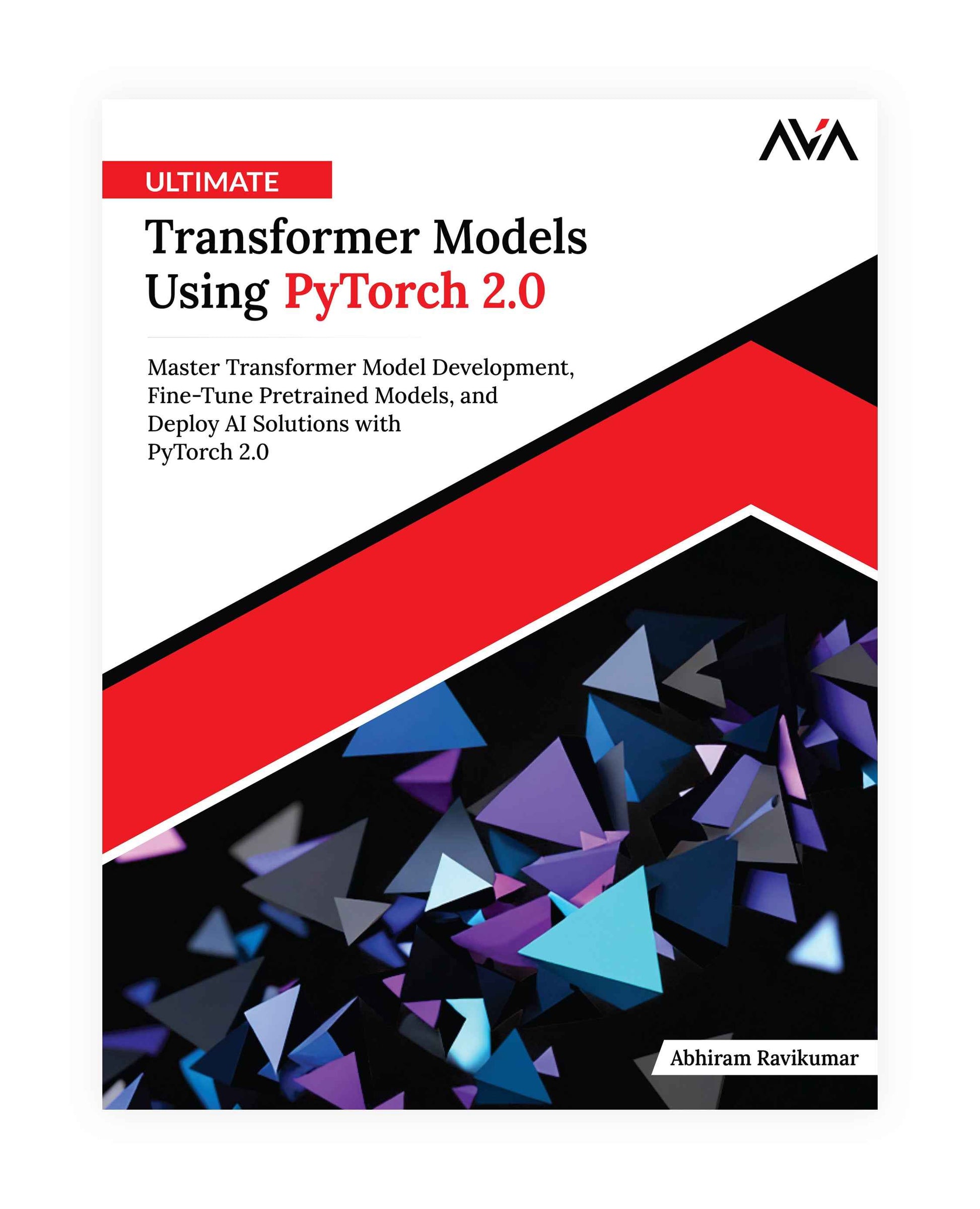Ultimate Transformer Models Using PyTorch 2.0
Ultimate Transformer Models Using PyTorch 2.0
SKU:9789349888500
Couldn't load pickup availability
ISBN: 9789349888500
eISBN: 9789349888999
Rights: Worldwide
Author Name: Abhiram Ravikumar
Publishing Date: 04-Sep-2025
Dimension: 8.5*11 Inches
Binding: Paperback
Page Count: 328
Share


Collapsible content
Description
Build Real-World AI with Transformers Powered by PyTorch 2.0.
Key Features
● Complete hands-on projects spanning NLP, vision, and speech AI.
● Interactive Jupyter Notebooks with real-world industry scenarios.
● Build a professional AI portfolio ready for career advancement.
Book Description
Transformer models have revolutionized AI across natural language processing, computer vision, and speech recognition. "Ultimate Transformer Models Using PyTorch 2.0" bridges theory and practice, guiding you from fundamentals to advanced implementations with hands-on projects that build a professional AI portfolio.
This comprehensive journey spans 11 chapters, beginning with transformer foundations and PyTorch 2.0 setup. With this book, you will master self-attention mechanisms, tackle NLP tasks such as text classification and translation, and then expand into computer vision and speech processing. Advanced topics include BERT and GPT models, the Hugging Face ecosystem, training strategies, and deployment techniques. Each chapter features practical exercises that reinforce learning through real-world applications.
By the end of this book, you will be able to confidently design, implement, and optimize transformer models for diverse challenges. So, whether revolutionizing language understanding, advancing computer vision, or innovating speech recognition, you will possess both theoretical knowledge and practical expertise to deploy solutions effectively across industries like healthcare, finance, and social media, positioning yourself at the AI revolution's forefront.
What you will learn
● Build custom transformer architectures from scratch, using PyTorch 2.0.
● Fine-tune BERT, GPT, and T5 models for specific applications.
● Deploy production-ready AI models across NLP, vision, and speech domains.
● Master Hugging Face ecosystem for rapid model development and deployment.
● Optimize transformer performance, using advanced training techniques and hyperparameters.
● Create a professional portfolio showcasing real-world transformer implementations.
Who is this book for?
This book is designed for data scientists, ML engineers, AI practitioners, and computer science students with intermediate Python Programming skills and basic machine learning knowledge. Readers should have foundational understanding of neural networks and deep learning principles, though prior transformer or PyTorch 2.0 experience is not required.
Table of Contents
1. Understanding the Evolution of Neural Networks
2. Fundamentals of Transformer Architecture
3. Getting Started with PyTorch 2.0
4. Natural Language Processing with Transformers
5. Computer Vision with Transformers
6. Speech Processing with Transformers
7. Advanced Transformer Models
8. Using HuggingFace with PyTorch
9. Training and Fine-Tuning Transformers
10. Deploying Transformer Models
11. Transformers in Real-World Applications
Index
About Author & Technical Reviewer
Abhiram Ravikumar is a Senior Data Scientist at Publicis Sapient, where he applies his extensive expertise in natural language processing, machine learning, and AI to solve complex business challenges. He holds a Master's degree in Data Science from King's College, London, and brings a wealth of academic and industry experience to this book on transformer models and PyTorch 2.0.
An experienced member of the Mozilla Tech Speakers program, Abhiram has presented at international tech conferences such as PyCon, MozFest, and CodeMash. His ability to communicate complex technical concepts is further evidenced by his LinkedIn Learning course on Rust Programming, which has reached over 60,000 learners. His talk on Clustering Topic Models at the Analytics Vidhya DataHour Forum Talk series attracted over 4,200 participants and received an impressive feedback rating of 4.6 out of 5.
Abhiram's background spans through both academia and industry. He has published many papers and posters at IEEE and ACM research conferences. His industry experience includes over four years at SAP Labs in Bengaluru, where he specialized in web development, computer vision, and Robotic Process Automation (RPA). He also worked as a Data Science and Cloud Machine Learning Engineer at Collinson's specialist Data Science team. At AI Palette, he built contextually relevant Small Language Models for niche retail use cases, and successfully deployed transformer-based models in production environments.
About the Technical Reviewer
Gautam Kumar is a seasoned professional with over 8 years of experience in designing and developing data-driven enterprise applications, both in on-premises and cloud environments. He has always been interested in applying AI and machine learning to existing business scenarios. Earlier in his career, he worked across multiple industries such as semiconductors, telecom, HRMS, energy, finance, and retail data. There, he worked to optimize data strategies and modernize application architectures with AI. Over the years, he has held various technical and leadership roles, helping teams deliver impactful solutions that drive business value monetization. He has primarily worked in the data science field, building and integrating AI/ML models into existing systems and optimizing system performance. His focus is always on developing scalable and maintainable solutions that meet business needs. He has worked for Accenture, HCLTech, and Ericsson.
He is currently working full-time as a Sr. Data Scientist in the AI and Automation domain at "Racanaa Energy Solution Pvt Ltd." His role and responsibility include working with global clients to develop intelligent AI systems that transform operations and help management make AI-driven decisions. He has extensive knowledge of data flows, cloud infrastructures, and AI adoption strategies, enabling organizations to make confident, data-driven decisions. He also supports teams in adopting GenAI LLM and other new technologies.


